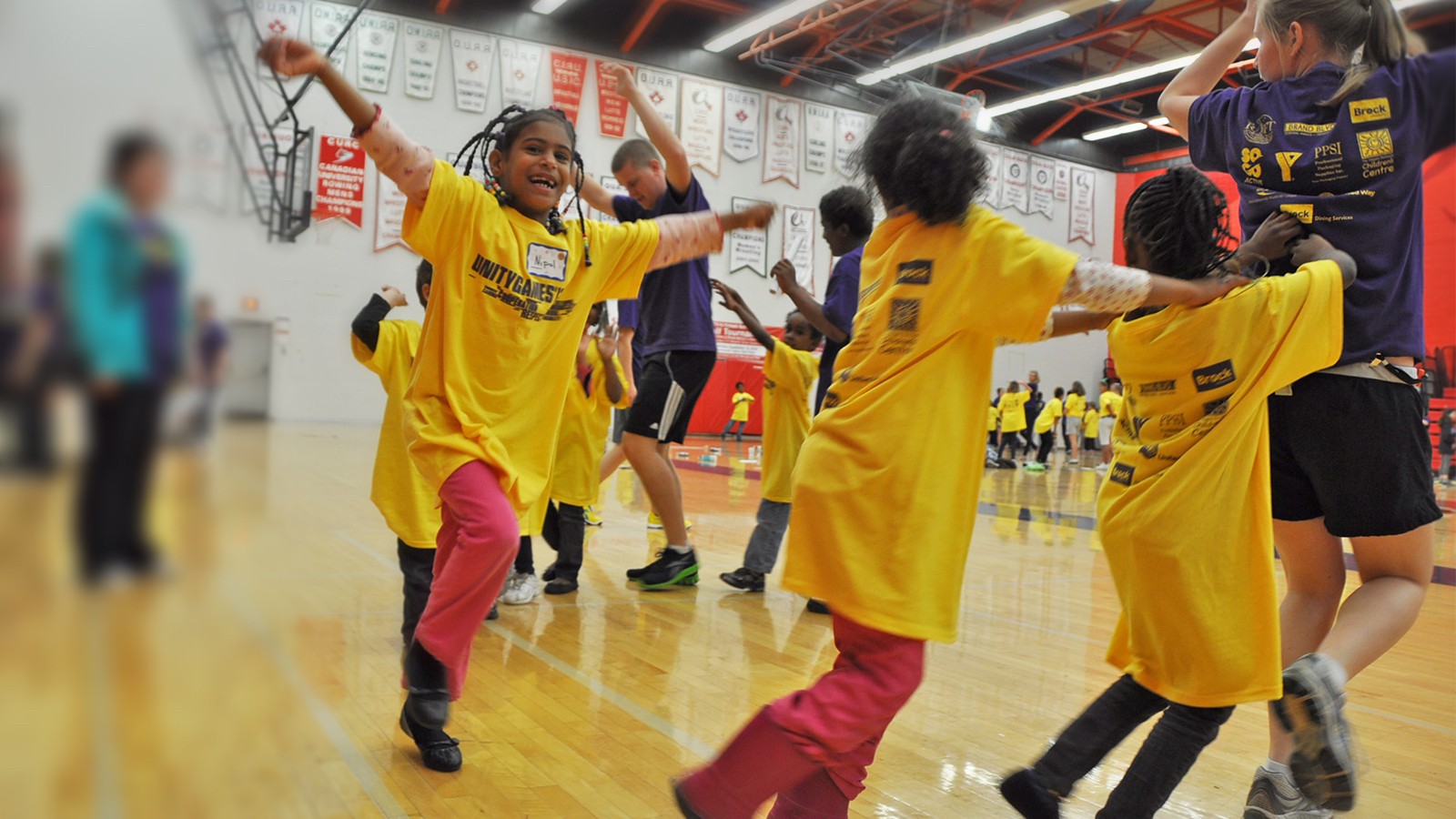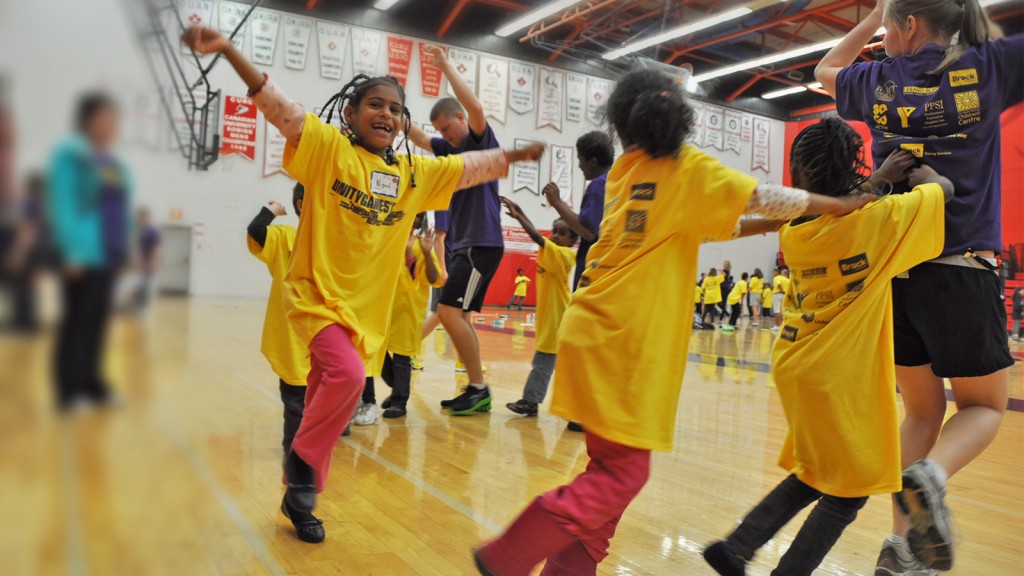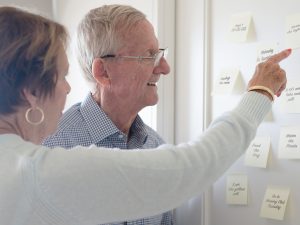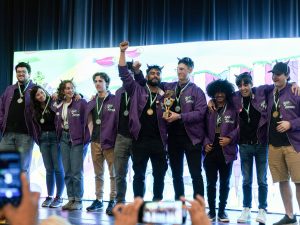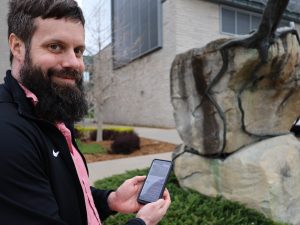More than 110 youth from Niagara will come together at Brock University this weekend to learn valuable life skills during the fifth annual Unity Games.
The event is an engaging and active way to unite youth involved with after school programs run by United Way, YMCA, the Niagara Children’s Centre (NCC), and the Resource Association for Teens (RAFT). Youth will participate in active co-operative activities that teach skills such as co-operation, fair play, leadership and respect.
The games take place Saturday, March 28, from 11 a.m. to 3 p.m. in Brock’s Gym 2.
“Unity Games is an experience that really brings the community together,” says James Mandigo, Interim Dean and Professor in Kinesiology at Brock University.
Building upon the energy and successes of co-ordinating international Unity Games in Central America and the Caribbean, Mandigo brought the program to Niagara in 2010. The games are designed to facilitate a learning experience that involves physical education and sport programming that engages youth and helps to develop social skills.
“It’s really special to see Brock students working with youth from our community,” says Mandigo. “It’s a great environment and the appreciation from both students and youth participants is what continues to make this annual event so successful.”
More than 30 Brock student volunteers will be working with the youths aged 7 to 13.
“Given some of the troubling events that have occurred throughout the last year, each activity at the Games emphasizes peace as a thematic element,” says Erica Dugas, graduate student and event management co-ordinator for Unity Games. Dugas has helped run three Unity Games, including one in El Salvador in 2012.
“I am incredibly fortunate to be involved with this initiative again. As a physical educator, I strongly value the opportunity to facilitate an interaction between physical competence and affective characteristics, and to allow participants to construct various situations that embrace both lifelong participation and the development of life skills.”
